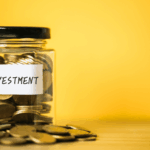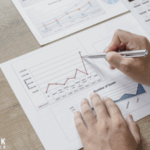German energy solutions provider 1KOMMA5° is formally opposing the German government’s strategy to expand fossil gas power plants by 2030. The company, focusing on clean energy technologies like solar power and energy storage, has filed a complaint with the European Commission. 1KOMMA5° raises concerns about potential market distortions and cost hikes resulting from state-subsidized fossil gas power plants, arguing for technology-neutral competition to better serve consumers’ interests.
In past reports, scrutiny has intensified around Germany’s reliance on transitional power sources, such as natural gas. Advocates for renewable energy stress that such measures could undermine the country’s climate goals, as they divert resources from sustainable innovations. The tension between maintaining reliable energy supplies and reducing carbon emissions has been an ongoing debate within the European energy sector.
What is the government planning?
The government’s proposal includes delivering subsidies to gas-fired power plants via tenders during construction and through a central capacity market during operation. According to state aid law, such subsidies are permissible only if they do not skew competition and if no superior, non-subsidy alternatives exist. The initiative is positioned as necessary for ensuring a stable power supply. However, 1KOMMA5° has questioned the rationale, highlighting a lack of compliance with competitive fairness and sustainability objectives.
Can 1KOMMA5° influence energy policies?
By launching a formal complaint, 1KOMMA5° positions itself prominently in the discourse on state aid law, gaining recognition as an ‘interested party’ within the EU’s legal framework. The company opposes the idea that government plans play fair in the energy market and instead advocates measures they consider distortionary for cleaner energy competitors. They call on policymakers to ensure fair participation rules for both centralised and decentralised energy producers.
1KOMMA5° CEO Philipp Schröder asserts that a competitive, technology-agnostic marketplace is crucial.
“We need technology-neutral competition between centralised and decentralised power plants,”
says Schröder, who also emphasizes the economic and climate benefits of clean energy strategies. Such an approach threatens the current subsidy program, arguing it could raise consumer electricity costs.
The company proposes alternative solutions such as a mandatory hedging obligation to maintain electricity supply security. This mechanism would not only eliminate reliance on subsidies but also appeal to market fairness principles.
“The planned combination of subsidies for new gas-fired power plants and payments through the capacity market burdens consumers,”
Schröder warned, citing potential impacts on investment and innovation.
Founded in 2021, 1KOMMA5° underscores its commitment to expanding renewable infrastructure across Europe. Operating a network of 80 locations worldwide, the startup has grown to include around 2,400 employees. Its mission includes converting millions of buildings to climate-friendly power solutions, aligning with broader climate action goals.
The energy firm’s efforts illustrate tensions between competing priorities in energy strategies. As a critical voice in this debate, 1KOMMA5° advocates for policies that balance climate objectives with market dynamics. The resolution of this complaint may be consequential for the extent to which Germany can reconcile traditional energy reliance with sustainable innovation.










